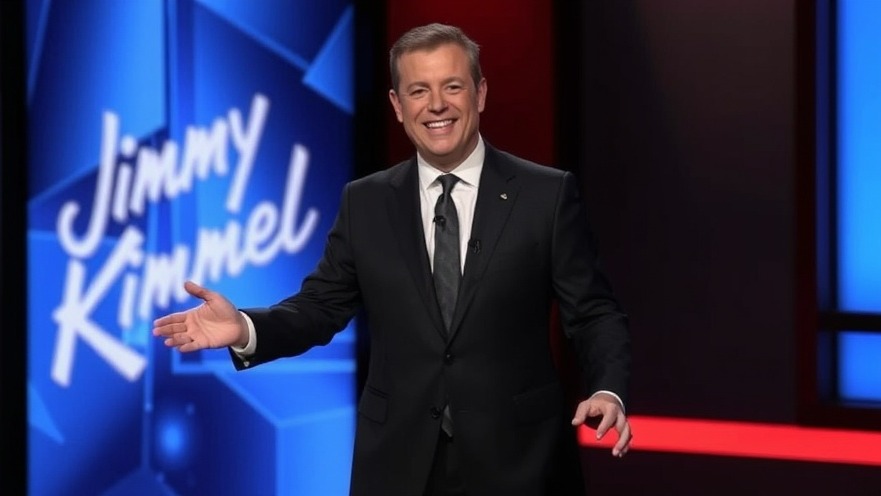
The Controversy Surrounding Kimmel's Suspension
Recently, Jimmy Kimmel's late-night talk show, Jimmy Kimmel Live!, faced a tumultuous and highly publicized suspension that pitted comedy against political pressures. The suspension was prompted by Kimmel's comments during a monologue about the late Charlie Kirk, a controversial activist, and his connection with the "Maga gang." These remarks led to significant backlash from political figures, including Brendan Carr, the chair of the Federal Communications Commission (FCC), who stated that the network could face repercussions if Kimmel's show aired without appropriate actions from Disney.
Understanding the New Landscape of Free Speech
The suspension ignited a broader conversation about free speech in media and the power dynamics influencing content creation today. Critics have pointed out how this situation exemplifies the growing tension between broadcasters and political influences. With high-profile personalities like Kimmel facing suspension over contentious remarks, many wonder where the line is drawn when it comes to satire and commentary in modern media landscapes.
This Isn't Just About Kimmel: A Reflection on Media's Role
Kimmel's case serves as a reflection of a larger issue in the television landscape, especially regarding how network decisions can be influenced by external pressures. The decision by Sinclair Broadcast Group to preempt Kimmel's show on its ABC affiliate stations indicates that this issue is not just limited to Kimmel's personal opinions but touches on the responsibilities of networks to uphold or challenge socio-political narratives. It begs the question: how can media outlets balance commercial interests with the need for honest discourse?
Similar Examples in the Media Landscape
This isn't the first instance where a late-night host has faced repercussions for their comments. For example, in 2018, comedian Samantha Bee faced significant backlash for calling Ivanka Trump a "feckless cunt" during her own show, resulting in advertisers pulling out and a national debate on what is permissible in comedy. These examples highlight a concerning trend where comedic expression is at odds with political narratives, creating an environment where entertainers must tread carefully to avoid provoking backlash.
Implications for Digital Nomads and Content Creators
The implications of Kimmel's suspension resonate strongly with today's digital nomads and content creators who rely on expressive and often politically charged media outlets to convey their message. It emphasizes the importance of understanding the audience’s diverse reactions to controversial subjects. As more people engage in nomadic lifestyles, they may face challenges in balancing their creative freedom with increasing censorship stemming from political influences in various countries. The international landscape requires a keen awareness of local cultural sensitivities as creators navigate their content strategies.
The Future of Late-night Television: Trends to Watch
As discussions continue around Kimmel's return to television, we must consider what this means for late-night programming's future. Will there be a shift towards more sanitized content at the risk of sacrificing authenticity? Or will hosts increasingly use their platforms to challenge prevailing political winds while facing potential consequences? Fans of Kimmel and similar hosts might find themselves at a crossroad as they navigate their preferences in a fragmented media landscape.
Conclusion
The reinstatement of Jimmy Kimmel's show post-suspension brings into focus the essential relationship between comedy, politics, and media integrity. As the aftermath of this event unfolds, it may pave the way for a new era of late-night television where creators must consider the repercussions of their words more than ever before. For the digital nomads and creative communities, the challenge remains: maintain an authentic voice amidst the shifting tides of culture and politics.
As we continue to observe these pivotal moments in media, consider how they influence not only the content you consume but also the creative expression you participate in. Engage in discussions about the intersection of free speech and media integrity, and explore how this can shape your content strategies moving forward.
 Add Row
Add Row  Add
Add 




Write A Comment